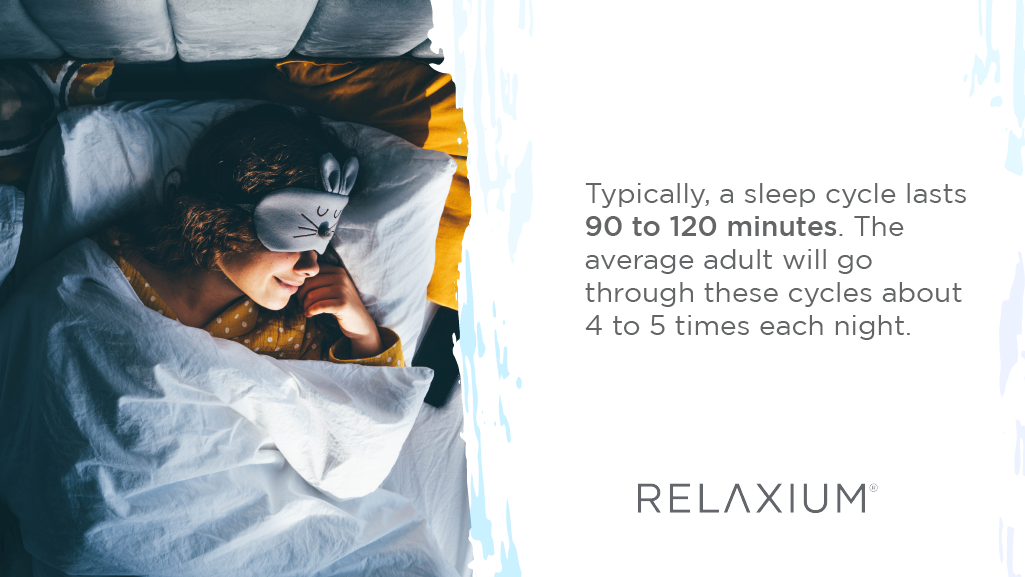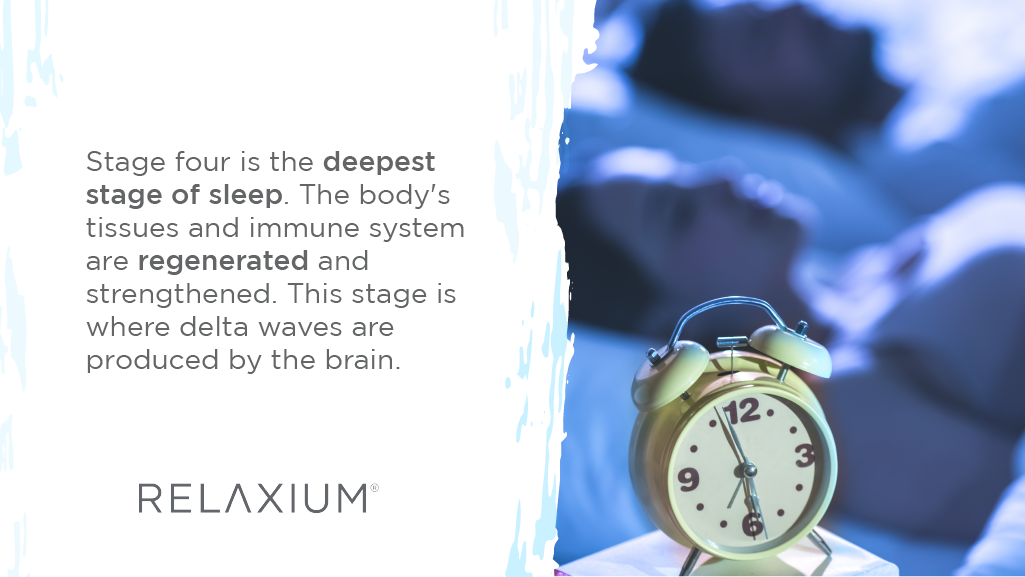Understanding what happens in the body is important when dealing with sleep struggles. There are five stages of the sleep cycle. We will walk you through each stage of the sleep cycle so you can truly comprehend what happens to the body during sleep.
A lot happens in the body and mind during sleep. The duration of these cycles is what makes the difference between a restful night of sleep versus a restless one.
Considering millions of Americans struggle to get a full restful night’s sleep, this information may prove to serve many benefits. This as well as it simply being an interesting subject because it is not one that you hear much about.
What is a sleep cycle and what are stages?
A sleep cycle is a pattern of stages of sleep. These occur during your entire period of sleep. There are five different stages that make the sleep cycle. They repeat themselves throughout the night. Each will be explained.
Typically, a sleep cycle lasts 90 to 120 minutes. The average adult will go through these cycles about 4 to 5 times each night. Of course, factors such as age, lifestyle, and health determine how long and effective they are.
If struggling to get into a sleep cycle, a sleep supplement may be beneficial. This is where Relaxium comes in. We have a sleep supplement called Relaxium Sleep. This supplement is designed to help you fall asleep faster, stay asleep longer, and have you waking up feeling more refreshed and alert.

Stage 1
The first stage of the sleep cycle, stage one is the lightest sleep stage. This period of the cycle lasts a few minutes. This is where you are resting in bed with your eyes closed, trying to fall asleep. The body will start to relax and then the brain produces what are called alpha and theta waves.
Alpha waves are a brainwave associated with relaxation. They have a frequency of 8 to 12 Hz. They generate on the brain’s occipital lobe, the back of the head. These types of waves most commonly occur when a person’s eyes are closed, but the person is still awake. They go away when you fall asleep.
Theta waves are associated with meditation, daydreaming, and light sleep. They have a frequency of 4 to 8 Hz. These brainwaves generate in the brain’s temporal lobe, above the ears. Research has actually shown that these types of brainwaves can show an increase in creativity, emotional connection, and even memory.
Stage 2
The second stage of sleep is the one you stay in the majority of the night. During this stage, the brain will produce rapid rhythmic brainwave activity referred to as sleep spindles and K-complexes.
Sleep spindles are generated in the thalamus. This structure of the brain helps to regulate consciousness, sensory perception, and sleep.
K-complexes are a sudden spike that occurs in brain activity, which is then followed by a slower wave. They last only a couple of seconds and have a frequency of about 0.5 to 2 Hz. If woken by loud noise or touch, K-complexes tend to show.
Stage 3
In the third stage of sleep, slow-wave sleep begins. Also referred to as SWS, this stage is when the brain produces slow delta waves, and the functions in the body slow down, including breathing and heart rate.
This is an important stage of sleep because this is when restoration occurs. Torn tissues and muscles are repaired. Cognitive functions are also repaired during this stage.
Stage 4
Stage four is the deepest stage of sleep. The body’s tissues and immune system are regenerated and strengthened. Also part of SWS, this stage is where delta waves are produced by the brain.
Delta waves are a brainwave that possesses a frequency of less than 4 Hz. Generated by the brain’s frontal lobe, at the front of the head. These waves are very important for the restorative part of the sleep cycle. Overall health and well-being are affected by delta waves.

Stage 5
Possibly the most well-known stage of the sleep cycle, stage five is the REM cycle of sleep. Rapid eye movements occur during this stage; which leads to dreaming. These dreams are typically the most intense and vivid. The body is very active during this stage even though the muscles in the body are relaxed.
This stage helps to sharpen cognitive functions such as creativity and memory. The first episode of REM sleep occurs around 90 minutes after you fall asleep. It will last a few minutes but then each episode increases later in the night as you sleep.
How to not disrupt the stages of the sleep cycle
Now that you know what entails in each cycle of sleep, how can you help to never disrupt these cycles? Well, good sleep hygiene is key.
What is sleep hygiene? Sleep hygiene is a set of practices and habits that promote a healthier sleep pattern. When remained consistent, the overall quality of sleep improves.
Examples of good sleep hygiene include:
- Creating a relaxing environment where you sleep
- Avoiding caffeine or alcohol in the evening
- Not using technology before bed
- Waking up and falling asleep at the same time each day
- Staying active
- Not eating right before bed
- Engage in breathing techniques or other ways to manage stress
Sticking with these habits will regulate your sleep schedule, making it easier to fall asleep. In turn, this will help to keep the body healthy seeing as we need those 8 hours for overall well-being.

Now you know what happens in your head when you sleep
After reading this we hope that you have learned some new and valuable things when it comes to your sleep. Now we’ve clued you in of what occurs in your head during sleep and how important it is!
Relaxium offers a number of safe and effective supplements that aid in the categories of sleep, calm, focus, and immunity. Created by clinical neurologist and sleep expert, Dr. Eric Ciliberti, TryRelaxium.com offers a 30-day Money Back Guarantee trial of Relaxium Sleep to allow our users to truly experience its effects. To try a product today visit our website for more information.
To restful and healthy days ahead.
The Relaxium Team
*These statements have not been evaluated by the Food & Drug Administration. This product is not intended to diagnose, treat, cure, or prevent any disease.
Sources:
https://www.verywellmind.com/what-are-delta-waves-2795104
https://www.healthline.com/health/alpha-brain-waves#different-types-of-brain-waves
https://www.ncbi.nlm.nih.gov/pmc/articles/PMC5573739/
https://my.clevelandclinic.org/health/articles/12148-sleep-basics

